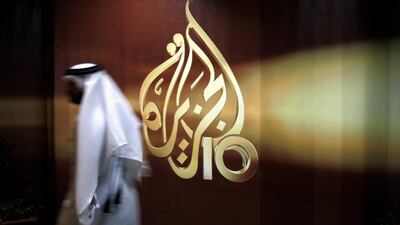The Middle East’s destiny relies on the outcome of one basic geopolitical struggle between the hegemonic ambitions of Iran, as it cements its proxies across the region, and the Gulf Cooperation Council countries and their allies who seek to thwart these ambitions.
The outcome of this struggle will be key to determining a deeper threat to stability. Iran is a theocracy, its political ambitions driven, at the end of the day, by mullahs and their ideological shock troops, the Revolutionary Guard.
On the other side of the sectarian divide there are the Sunni extremists whose ultimate aim is to subject all aspects of civil society and governance to their own interpretation of religious conformity. Of all the threats facing the region, theocratic triumphalism, whether prosecuted by Shia militias or members of the death cult ISIL, is the gravest.
Donald Trump’s recent visit to Saudi Arabia, in which the American president identified Iran as a threat to the region and rebooted the alliance between the United States and the GCC, has heightened the stakes in this regional stand-off. Local players can no longer take refuge in the fluid geopolitical world view of the Obama years.
Statements attributed to the Qatari leadership on, effectively, the legitimacy of Iranian influence in the affairs of the Arabian Peninsula, have enraged Qatar’s Gulf neighbours.
Having just re-established an unequivocal diplomatic, trade and security guarantee with Washington, Qatar is seen to have thrown a spanner into the works, introducing a crack into the edifice of strategic purpose agreed by the GCC.
Qatar has claimed the remarks, which also name-checked Hizbollah and Hamas and cast doubt over Mr Trump’s political future, were the result of a hack into the state-operated Qatar News Agency. Less easy to explain is how the remarks were carried on state-owned television and on other digital media platforms in two languages. But even if we concede that hackers had managed to subvert all these platforms, the comments are in keeping with Qatar’s sometimes promiscuous and sometimes self-contradictory foreign policy.
Over the years, Qatar has modelled itself as a political honest broker, a kind of Switzerland with teeth, able despite its small size to present, sometimes through the power of its purse, a forum for regional and international understanding.
In this way, it feels it can distinguish itself from its more populous and powerful neighbours through a kind of Qatari exceptionalism. But in the end, Qatar is a small state, albeit with big state pretensions. Amending, with apologies, the famous Theodore Roosevelt quote on foreign policy, it could be said that Doha speaks loudly (often through Al Jazeera Arabic) but carries a rather small stick.
This is its right, but this model of apparent political universality sits ill with some of its own policies. Qatar hosts a huge US military base, but at the same time has been linked to fundraising for terrorist entities and support for organisations such as Hamas, Hizbollah and the Taliban who are proscribed by its western “allies”.
Qatar has supported, financially and politically, Islamist organisations such as the Muslim Brotherhood, conniving at calls for democracy in the Middle East, while at the same time maintaining the dynastic rights and modes of government that would be the first to go if the Islamists were to prevail in its own backyard.
Qatar invests hugely in Britain, most recently pledging investment in a post-Brexit UK, while at the same time helping to create, or at least failing to unequivocally condemn, a brand of fundamentalism that is solidly anti-western. The recent Manchester bombing, in which 22 innocents lost their lives, was perpetrated by a young man steeped in the Islamist ideological world view - that the West is corrupt and that suicide bombing is a legitimate tool for the reintroduction of the so-called caliphate.
As for Iran, with whom it shares the world’s largest gas field, one can sympathise slightly with Doha’s qualified approach, situated as it is on the easternmost lip of the Arabian Peninsula, with the powerful Islamic Republic practically within shouting distance. But again, as with its support for political Islam, how would Qatar fare in the event of an Iranian takeover? At best it would end up a vassal state, at worst a ruin.
As The National’s leading article states on these pages, Doha must cease playing all sides and understand that the reality of Iranian influence, not just farther afield amidst the carnage in Syria or Iraq, but among its immediate neighbours.
Such influence has led to increased political and social destabilisation in countries such as Bahrain and to the deaths of Saudi civilians and of Saudi and Emirati service personnel.
Iran must not be allowed to insert a cigarette paper between the positions of GCC members now that they have agreed a joint approach, with western backing, for the ills that plague the region.
Time to pick a side, or failing that, stay silent.
Martin Newland is a former editor in chief of The National

